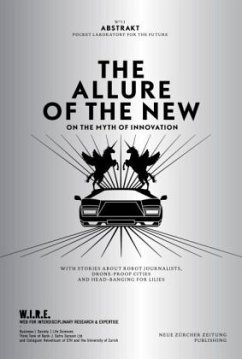Innovation is thought of as the prerequisite for economic growth and prosperity.
Our striving for constant renewal leads to the assumption that we are
living in a Golden Age of innovation. It s true that a constant stream of new
products is being launched on the market. However, quite a few of the things
promoted to us as pioneering breakthroughs are mere pseudo-innovations existing products polished up by a bit of marketing. Innovation has degenerated
into a buzzword. What it is, or how it can be measured, escapes our knowledge.
And how to create it by targeted means is quite beyond us. It s time, then,
to examine the allure of the new and the myth of innovation critically, but
foresightedly.
How do we arrive at genuine innovation? What can be described in those
terms? What can countries and companies do to support the breakthrough of
innovations that will bring progress to a society that rejects them, possibly out
of idleness? What role does regulation play in innovation? How can interior
design stimulate our creativity? How many types of creativity are there? And
what is the current retro-chic in society and music all about?
ABSTRAKT No11 goes in search of answers with economist Oliver Gassmann, automotive pioneer Frank M. Rinderknecht, philosopher Günter Abel, music journalist Mark Fisher and interior designer Sevil Peach.
Our striving for constant renewal leads to the assumption that we are
living in a Golden Age of innovation. It s true that a constant stream of new
products is being launched on the market. However, quite a few of the things
promoted to us as pioneering breakthroughs are mere pseudo-innovations existing products polished up by a bit of marketing. Innovation has degenerated
into a buzzword. What it is, or how it can be measured, escapes our knowledge.
And how to create it by targeted means is quite beyond us. It s time, then,
to examine the allure of the new and the myth of innovation critically, but
foresightedly.
How do we arrive at genuine innovation? What can be described in those
terms? What can countries and companies do to support the breakthrough of
innovations that will bring progress to a society that rejects them, possibly out
of idleness? What role does regulation play in innovation? How can interior
design stimulate our creativity? How many types of creativity are there? And
what is the current retro-chic in society and music all about?
ABSTRAKT No11 goes in search of answers with economist Oliver Gassmann, automotive pioneer Frank M. Rinderknecht, philosopher Günter Abel, music journalist Mark Fisher and interior designer Sevil Peach.

